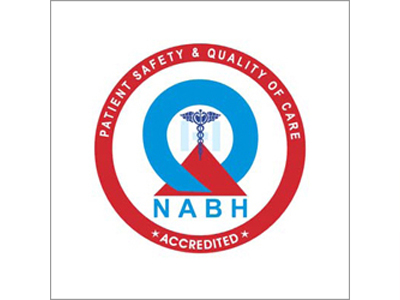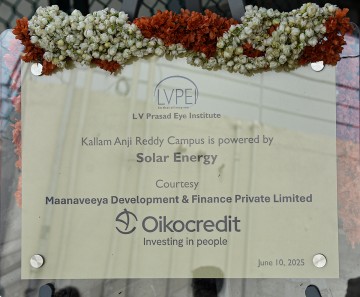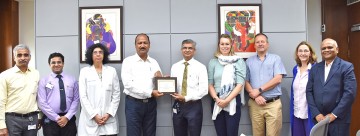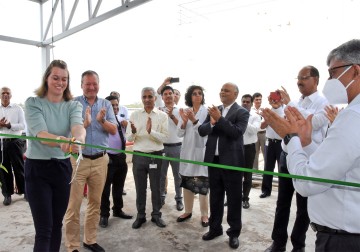On Tuesday, June 10, 2025, the L V Prasad Eye Institute (LVPEI) celebrated its continued progress towards sustainability with the formal inauguration of its expanded solar rooftop installation at its Quaternary Centre in Banjara Hills, Hyderabad. The event was graced by a distinguished delegation from CSR partner, Maanaveeya Development & Finance Private Limited, the Indian subsidiary of OIKO Credit, including MD & CEO Dr Gouri Sankar and members of the Board and Leadership Team from the Netherlands Global Office.
Maanaveeya Development & Finance Private Limited has been a valued partner in advancing our sustainability and equity initiatives. Having previously funded the installation of solar panels at the same campus in Hyderabad, they also aided the installation of panels at the Shirin Etian & Tara Brown Eye Centre in Kismatpur, Hyderabad, the Kode Venkatadri Chowdary Campus in Vijayawada, and the Mithu Tulsi Chanrai Campus in Bhubaneswar. They also supported over 800 eye surgeries at no cost to the patient.
This expansion of the solar grid furthers LVPEI’s commitment to environmental stewardship and sustainable healthcare. By shifting to clean solar energy, the Institute has drastically reduced its carbon footprint and lowered its dependency on conventional grid power. The cost savings on electricity have been channeled into life-transforming initiatives—notably, funding free cataract surgeries for underserved communities.
Impact Highlights:
- Environmental Impact: Reduced greenhouse gas emissions and lower grid dependency.
- Socio-economic Impact: Hundreds of free cataract surgeries funded from the substantial savings on power bills, restoring sight and dignity to those in need.
- Institutional Impact: LVPEI emerging as a model for green hospitals, setting a benchmark in sustainable healthcare in India.
This project directly supports five of the United Nations Sustainable Development Goals — SDG 3 (Good Health and Well-being), SDG 7 (Affordable and Clean Energy), SDG 9 (Industry, Innovation and Infrastructure), SDG 12 (Responsible Consumption and Production), and SDG 13 (Climate Action).
The solar rooftop system was made active on May 19, 2025. From the next day (May 20, 2025) up until now (June 12, 2025), it has generated a total of 20,613 units of electricity using sunlight.
An average Indian urban household uses roughly between 100-260 units/month depending on appliance use. This means the rooftop solar plant, since May 2025, has generated 20,613 units of clean electricity enough to meet the monthly electricity needs of 100 typical Indian urban homes or drive a car for over 58,000 KM simply on sunshine!






